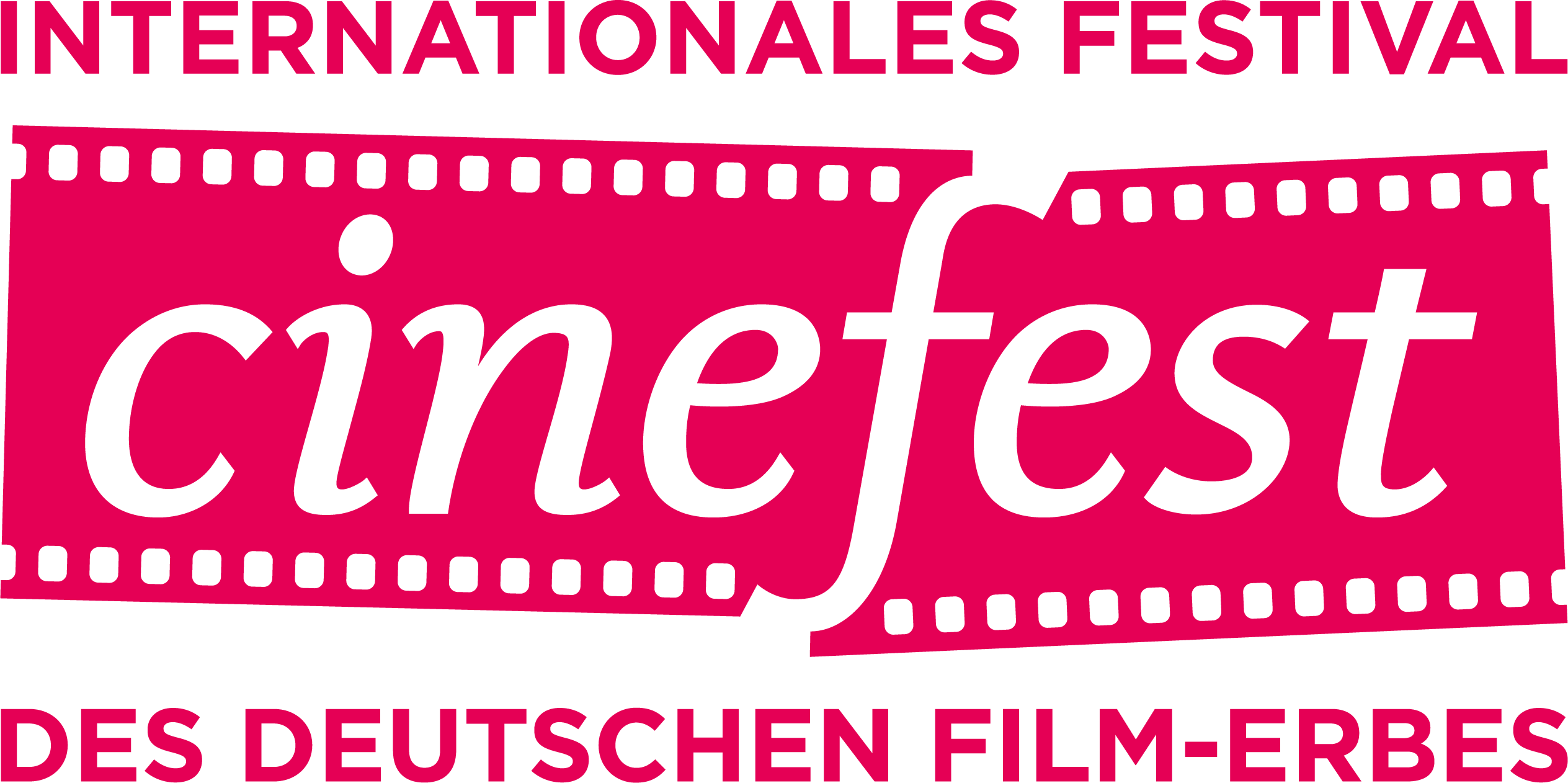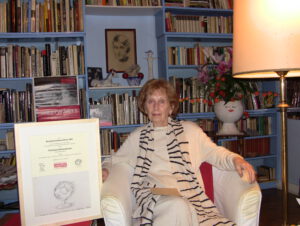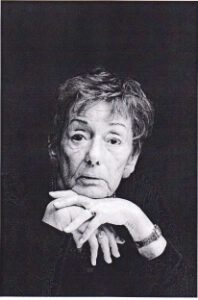REINHOLD SCHÜNZEL AWARD 2023
The Reinhold Schünzel Prize 2023 will be awarded on 17.11.2023 as part of the opening of cinefest at the Metropolis cinema.
Laureate 2023:
Leonardo Quaresima
Film Historian, Udine, Italy
The jury’s laudatory speech and reasoning were presented by Hans-Michael Bock on behalf of the jury.
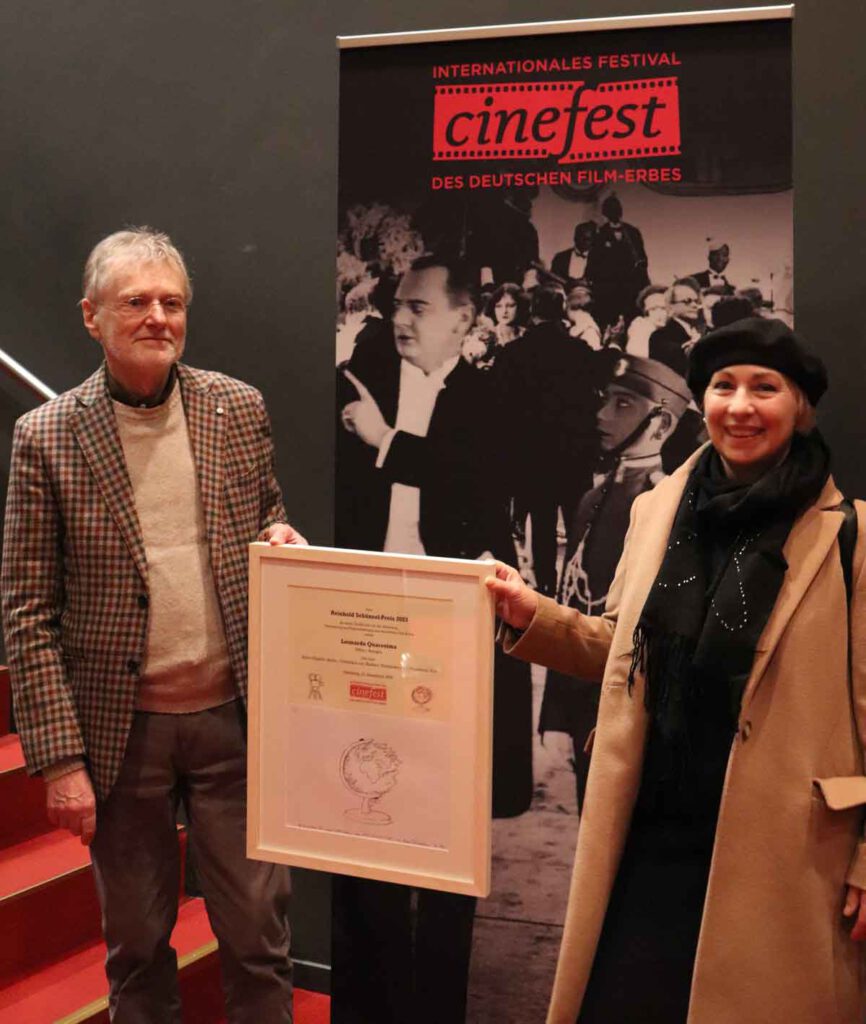
Leonardo Quaresima and Luisa Quaresima
The Jury 2023:
- Christiane von Wahlert, Board of the Friedrich Wilhelm Murnau Foundation, Wiesbaden
- Heike Klapdor, film historian, Berlin, Reinhold Schünzel Award laureate 2016
- Jay Weissberg, Artistic Director of Le Giornate del Cinema Muto, Pordenone
REINHOLD SCHÜNZEL AWARD 2022
The Reinhold Schünzel Award 2022 was awarded on November 11, 2022 as part of the opening of the cinefest in the Metropolis cinema.
The international jury awarded the Reinhold Schünzel Award 2022 to the film historian
Sabine Hake
The jury’s laudatory speech and reasoning were presented by Hans-Michael Bock on behalf of the jury.
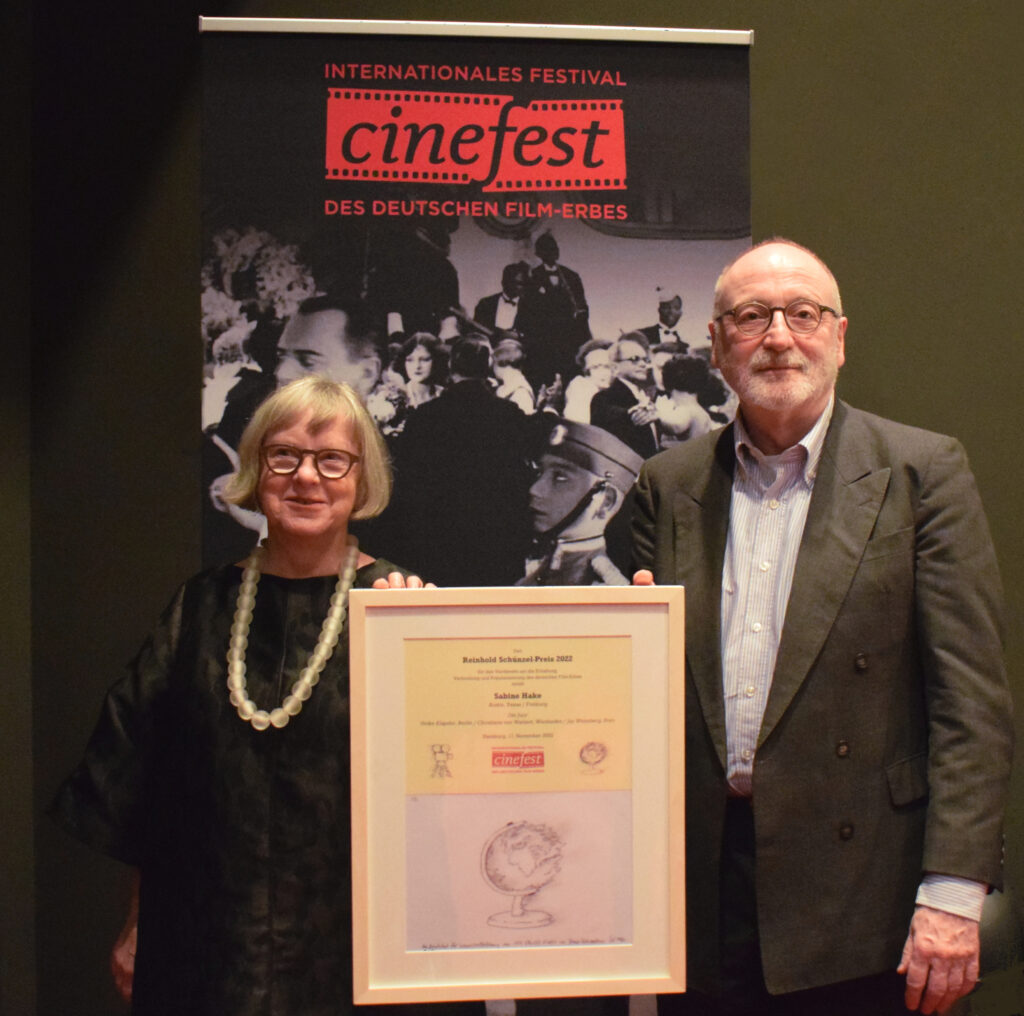
Sabine Hake and Hans-Michael Bock
Sabine Hake studied German studies and sociology in Hanover. In 1984 she wrote her dissertation »Ernst Lubitsch, a German Rising History« and emigrated to the USA, where she taught at the University of Pittsburgh for 16 years. In 2004, she moved to Austin to the University of Texas as Professor and Texas Chair of German Literature and Culture. As a cultural and film historian, she focuses on German film history and the culture of the Weimar Republic. In addition to classical film theory, her area of expertise lies in the relationship between cultural practices and aesthetic sensations such as modernism and fascist aesthetics, as well as in mass, popular, urban and working-class culture.
In 1992 she published her first book »Passions and Deceptions: The Early Films of Ernst Lubitsch«, in which she examined Lubitsch’s early German films. »What impressed me then, and still impresses me now, is the way she pushed aside competing schools of thought to take a more comprehensive approach that went far beyond what was fashionable at the time. From the beginning of her academic career, she respected the films and their makers, rather than encountering them through changing waves of ideology and theory.« (Weissberg). Her second book »The Cinema’s Third Machine: Writing on Film in Germany, 1907-1933« (1993) does not deal with so-called »expressionist cinema«, but describes the journalistic and theoretical environment in which film culture emerged at the time. »The volume presented important texts to English-speaking readers that were previously difficult to access, and demonstrated their comprehensive approach to film history, which was based on the integration of film, reception and analysis.« (Jury). In 2001, her book was published with her introduction to the topic of »Film Journalism of the Weimar Years« (1997), and was expanded in 2007 in the series of »German National Cinema«. In the following decade, she investigated the forms of entertainment genres within the »Third Reich«, and wrote two books on »Popular Cinema of the Third Reich«. »She went beyond simplistic ideas of propaganda and its power to discuss the imagery and the effect of pleasure in a more informed way.« (Jury). In the years that followed, she conducted intensive research on the topic of workers’ culture, as she did in 2008 in »Topographies of Class: Modern Architecture and Mass Society in Weimar Berlin«. Her latest work to date »The Nazi Worker« (2023) is the second part of a three-volume project on the figure of the worker and, in a broader sense, on class issues in 20th-century German culture.
In 2005-16 she co-edited with Hans-Michael Bock (CineGraph, Hamburg) and Tim Bergfelder (University of Southampton) the series »Film Europa. German Cinema in an International Context« published by Berghahn Books in New York and Oxford. From 2011 to 2021, she also served as editor of »German Studies Review«, the magazine of the influential German Studies Association.
The Jury 2022:
- Christiane von Wahlert, Board of the Friedrich Wilhelm Murnau Foundation, Wiesbaden
- Heike Klapdor, film historian, Berlin, Reinhold Schünzel Award laureate 2016
- Jay Weissberg, Artistic Director of Le Giornate del Cinema Muto, Pordenone
REINHOLD SCHÜNZEL AWARD 2021
The Reinhold Schünzel Award 2022 was awarded on November 12, 2021 as part of the opening of the cinefest in the Metropolis cinema.
The international jury awarded the Reinhold Schünzel Award 2021 to the film historian
Christiane Mückenberger
The jury’s laudatory speech and reasoning were presented by Hans-Michael Bock and jury member Jay Weissberg. Since Christiane Mückenberger was unable to attend in person, the prize was presented to her in advance at her apartment in Potsdam-Babelsberg.
Jury 2021:
- Christiane von Wahlert, Board of the Friedrich Wilhelm Murnau Foundation, Wiesbaden
- Heike Klapdor, film historian, Berlin, Reinhold Schünzel Award laureate 2016
- Jay Weissberg, Artistic Director of Le Giornate del Cinema Muto, Pordenone
REINHOLD SCHÜNZEL AWARD 2020
The Reinhold Schünzel Prize 2020 was awarded on 13.11.2020 as part of the opening of cinefest, which could only take place online this year.
Die internationale Jury verlieh den Reinhold-Schünzel-Award 2020 to the film historian and cultural politician
Kathinka Dittrich van Weringh
Kathinka Dittrich van Weringh studied history, political science and English Studies in Heidelberg, Hamburg, Manchester and Munich. After graduating in 1966, she worked for the Goethe-Institut for 27 years: first in Barcelona, then in New York, and from 1979 in Amsterdam, where she was director of the Goethe-Institut from 1981-86. There, despite the tensions that still existed after the Nazi occupation in the Second World War, she began to draw attention to the numerous cultural relations between the Netherlands and Germany. In 1981, together with Prof. Hans Würzner, she organized the conference “Nederland en het Duitse Exil 1933-1940 / Die Niederlande und das deutsche Exil 1933-1940” in Leiden (with a book of collected essays). The following year, in Amsterdam (and other Dutch cities), she organized the exhibition “Berlijn-Amsterdam 1920-1940: wisselwerkingen” with an extensive catalogue book.
Her personal interest lay primarily in the field of film. With her doctoral thesis »Der niederländische Spielfilm der dreissiger Jahre und die deutsche Filmemigration« (1987 at the University of Amsterdam), she pointed out in detail for the first time this rather overlooked stage of film exile.
In 1996 she was awarded the Dutch Von der Gablentz Prize for her contribution to a better mutual understanding between Germany and the Netherlands through her numerous cultural initiatives.
At the request of her Dutch husband Koos van Weringh, a freelance author and journalist, she turned down the offer to become director of the Nederlands Film Museum in order to stay with Goethe.
After some time at the headquarters in Munich, she organized the founding of the first Goethe-Institut in Moscow in 1991 after the collapse of the Soviet Union and published the book »Abenteuer Moskau« (1994/95) on the subject.
From 1994 to 1998 she was head of the cultural department of the city of Cologne, where she still lives today. Since then, she has been a freelance cultural consultant and author. In 2003 she became Chair of the Board of Directors of the European Cultural Foundation in Amsterdam.
In 2017, she published her voluminous memoirs (more than 600 pages): »Wann vergeht Vergangenheit?«. In it, she lets the reader participate in her encounters with artists, filmmakers, writers and musicians, with functionaries and politicians. She was always curious about the world and its people, saw herself as an observer and, above all, as a mediator between cultures.
Jury members 2020:
- Michal Bregant, Director of the National Film Archive in Prague
- Heike Klapdor, film historian, Berlin, Reinhold Schünzel Award laureate 2016
- Jay Weissberg, Artistic Director of Le Giornate del Cinema Muto, Pordenone
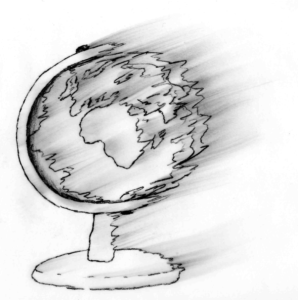
The Reinhold Schünzel Award is an honorary prize awarded for long-time achievements in the field of restoration, preservation or dissemination and popularisation of the German film heritage to one or more persons (not institutions).
Named after the actor and director Reinhold Schünzel, who was born in Hamburg in 1888 and died in Munich in 1954 after returning from exile in Hollywood.
Previous award winners (link leads to the old website)
